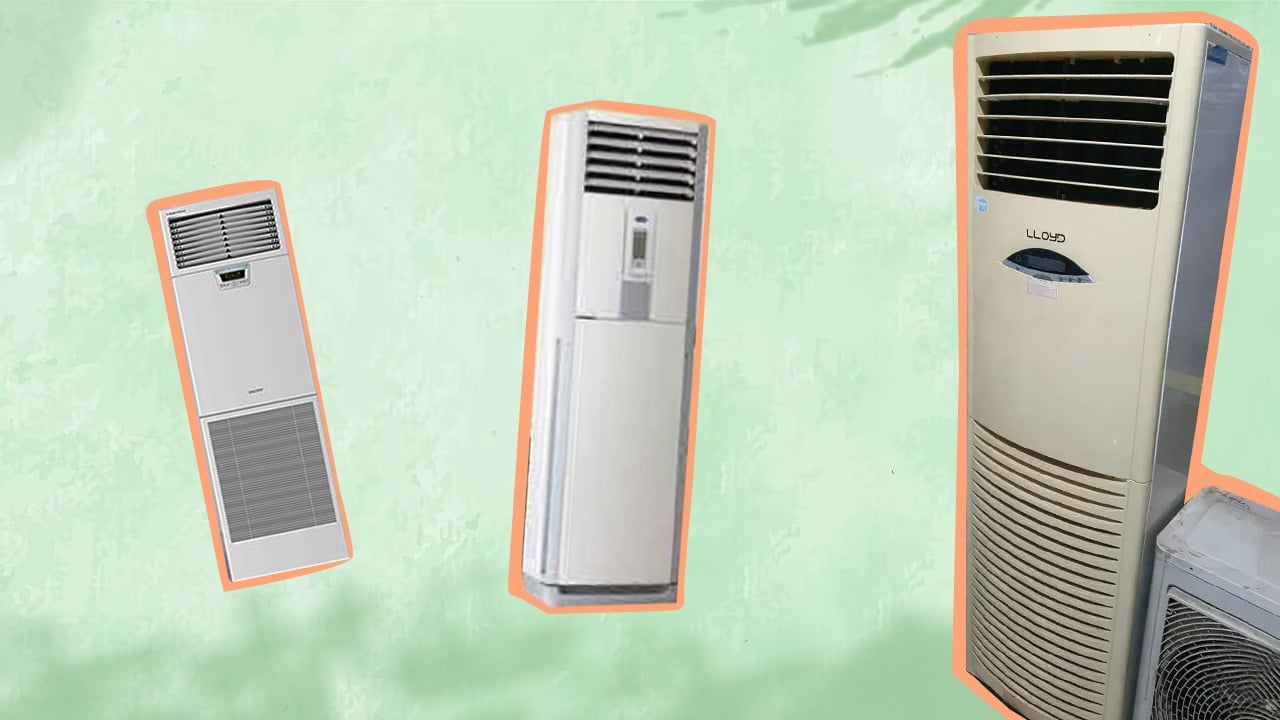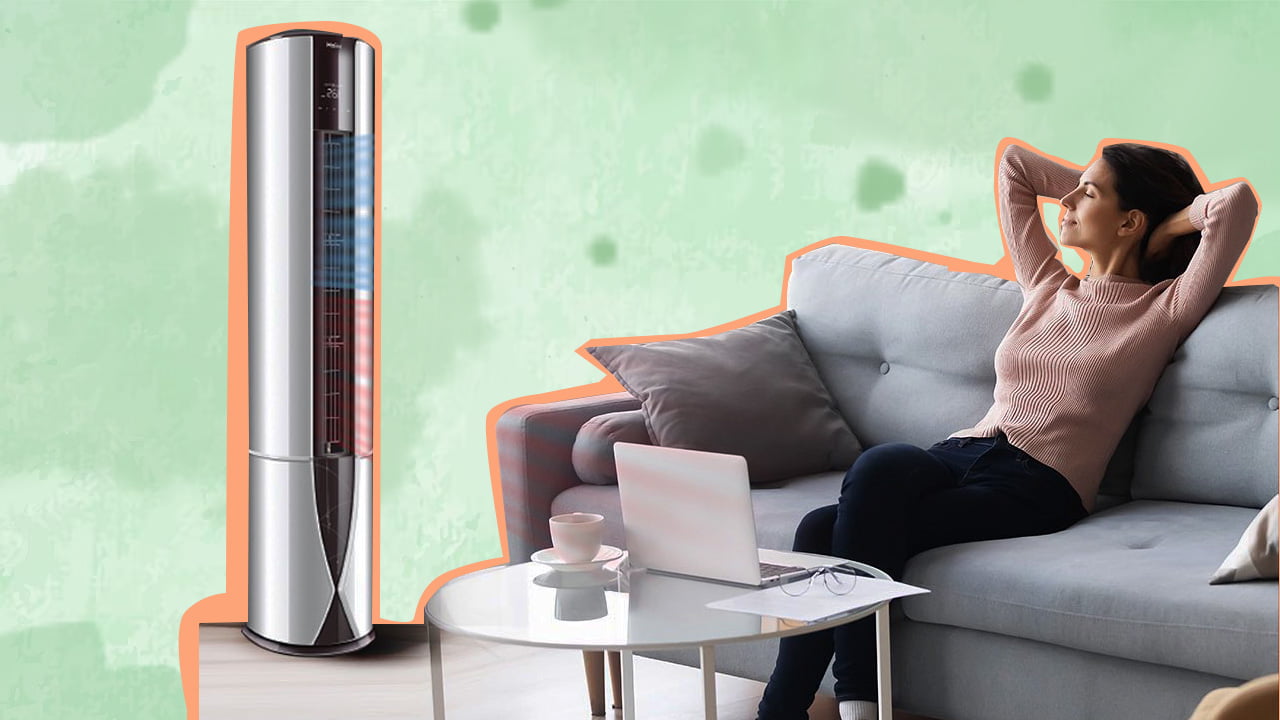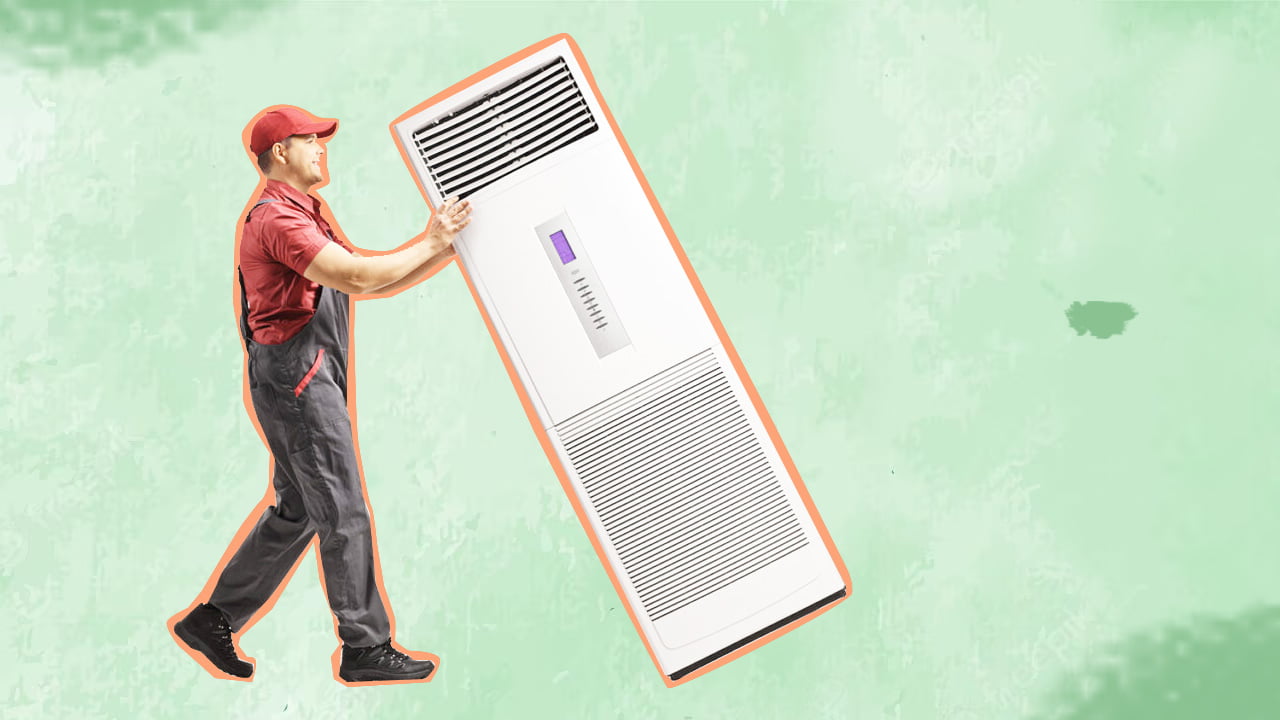Tower air conditioners deliver a performance comparable to that of split and central air conditioning systems. These units feature a sleek and vertical design, with multiple vents to cool the outside air and disperse it within a room.

Sometimes when you host friends for a party, too many people in the room render the air conditioner ineffective. Moreover, people sitting near the corners hardly receive any air, leaving guests uncomfortable and you struggling to provide enough cold water for everyone.
I faced a similar situation until I installed a tower AC in the room. Today I will explain its advantages and disadvantages for your benefit.
What Are Tower Air Conditioners?

Tower air conditioners are a type of split air conditioner, referred to as vertical models, that dehumidifies and cools indoor air using a refrigerant. They are smaller, taller, and occupy less space than a traditional split air conditioner.
Since there's no need to install the unit on the wall, you can move this slightly portable air conditioner to a suitable spot within the room. This makes them more affordable, despite having an external unit much like other air conditioners.
But what makes people hesitant about using these air conditioning systems is they fail to cool all corners of a room and can be noisy. However, installation tends to be easy, and overall, a tower air conditioner only uses a little electricity while proving low maintenance, as they are simple to clean.
Are Tower Air Conditioners Effective?
These portable air conditioners are quite effective in cooling large spaces, even though the cold air may not reach every nook and cranny. However, the tall and narrow design of Tower ACs ensures they can disperse cold air throughout the room efficiently.
Thanks to the multiple vent design of these split systems, cool air filters into the room from several angles, which helps eliminate stagnant air or hot air pockets. Best of all is their energy-efficient nature, reducing electricity costs and harmful emissions to lower environmental impact.
I often use my tower air conditioner in a large indoor space when the outside temperature is especially high.
Tower AC Advantages And Disadvantages
While installing a tower air conditioner may not be your first choice, there is no doubting its effectiveness in keeping your home cool. The good thing is that such portable air conditioners function almost as well as regular air conditioners and don't cost as much.
That said, in terms of high-quality cooling, a traditional split AC or window air conditioner is still better and more powerful. But having used a tower AC myself, I can tell you that their cooling capacity can withstand even hot summers.
To know more about what makes a tower AC worth installing and what are some downsides of this portable AC, read the following section.
Advantages Of A Tower AC
Here are some of the significant advantages of tower air conditioners -
1. Low Cost
The most attractive aspect of a tower portable AC is that they are extremely affordable. Although you won't get an AC for a dime - it's an air conditioner, after all - the cost of using, installing, and managing electricity bills is much lower. While traditional air conditioners cost a lot, tower AC units are more suitable for people on a budget.
2. Versatile And Portable
Another attractive aspect of tower air conditioners is they are portable and highly versatile. While you can't shift a traditional air conditioner from one position to another, tower air conditioners reduce the need for installing multiple window units or central systems.
But there is a catch! They aren't versatile like a fully portable air conditioner because these units come with a duct. In other words, you can move the air conditioner as much as the duct allows, provided it remains connected.
When installing a tower air conditioner, consider the duct's position and keep space to move the unit to enjoy optimum cooling.
3. Easy Installation
While you will require professional help to install a split system or window AC, installing and using a tower AC is easier. There are no over-the-top installation requirements or complicated procedures that will leave you stumped. You can and should take professional help if needed, but most DIY enthusiasts will be able to install these split ACs themselves.
4. Energy-Efficient
The energy-efficient properties of a tower AC are undeniable, and such units don't consume much electricity even in extreme heat. A high-quality indoor unit will keep the air inside the room cool and lower the temperature of the outside air before it filters inside.
You will experience little difference in the cooling capacity for a small room, as a tower AC effectively disperses cold air in smaller spaces. But when the room size is large, it might fail to live up to the performance of traditional air conditioning units.
On the flip side, a tower AC doesn't cause much environmental damage and is more eco-friendly.
5. Additional Benefits
There are some extra features of a tower AC should know about, including modern upgrades that you will find in medium or high-end models. Some of these features are -
- A quality dehumidifier
- Smooth temperature controls
- Indoor air filters that help remove dust and allergens to create a healthy environment
Disadvantages Of A Tower AC
Despite the many good things about a tower AC, there are some disadvantages of using these models that I have highlighted in this section.
1. Noisy
The major issue with a tower AC is the noisy operation, and they are louder than other air conditioning systems. Some models feature noise dampeners, but even then, using such portable air conditioners at optimum capacity generates more noise.
People who want to install a tower AC in their bedroom or office space should opt for units with noise-reduction technology. Note that these models are pricier than regular tower ACs, but you will get value for money and more peace of mind.
2. Room Modifications
Sometimes it's essential to modify a room so that tower air conditioners can deliver the best results. They are not portable air conditioners per se, but people tend to get confused because a tower AC is movable upto a certain distance.
It's important to remember that like most split AC units or window ACs, a tower AC also has an outdoor unit. You must ensure the duct hose is connected between the indoor and outdoor system at all times so it doesn't lose power.
Connecting the hose entails making necessary changes to the area; hence, hiring a professional installer would be best if you need help installing a tower AC.
3. Need Sufficient Space
Since tower ACs are floor units, unlike window ACs, they require more indoor space despite featuring a sleek design. This is especially problematic for people with small rooms packed with furniture, even though such an indoor unit features a vertical and narrow design.
Moreover, there needs to be sufficient space for connecting the duct and moving the tower AC as far as possible. So, you might have to compromise on the available space in such instances.
Pros Of Tower Air Conditioners
- Fairly portable and can be moved conveniently
- Easy installation
- Efficient energy use
- Affordable, especially in the long run
- Works well when the outside temperature is high
- Cooling capacity is pretty good
Cons Of Tower Air Conditioners
- Has two units - an indoor and an outside unit
- Requires more space indoors
- Less powerful than a traditional air conditioner
- Noisy
Tip
A common misconception among people is they can move the tower AC to another room. This is not the case since they are not single units, and there is no way you can switch rooms without disconnecting the duct pipe.
Tower air conditioners are designed for cooling a large room and have a higher cooling capacity ranging between 24,000 and 48,000 BTU/hour. The lowest temperature a cooling tower should reach is 32 degrees Fahrenheit but it’s not possible to maintain this level of cooling for a sustained period. In many places with cold climates, a cooling tower can achieve a temperature of 5-degree Fahrenheit. The efficiency of tower ACs depends on 4 factors – For those who don’t know, range refers to the difference in temperature between the cold water outlet and hot water inlet of the tower. For tower ACs to perform at optimum capacity, it’s essential for the cooling tower system to have a proper water treatment system. This will reduce the chances scaling, corrosion, and microbial buildup for a pure air supply. A tower AC that is affected by such issues will suffer from – So, you will have no choice but to opt for costly repairs or replacements. While the motor speed of a cooling tower is around 1,800 RPM the fan speed is much slower. It is determined by the diameter of the blades, which are usually 14-28 feet in diameter, resulting in a fan speed of 90-230 RPM. Tower Air Conditioner FAQs

Conclusion
For home use, a tower AC, split AC, or window AC prove equally convenient, so which model you opt for comes down to personal preference.
When the cooling capacity on a budget is your priority, opt for a tower AC since you can also move the unit slightly. But a split or window unit would be better if you want high cooling and choose to install the AC in a large room.
The crucial point is that the potential advantages of a tower AC far outweigh the benefits offered by other air conditioners, which makes them a worthwhile investment. These include greater energy efficiency, easy installation, and a sustainable option, among other things.
I have sufficient indoor space, so getting a tower AC from the best brand to lower energy consumption made sense in my case.
